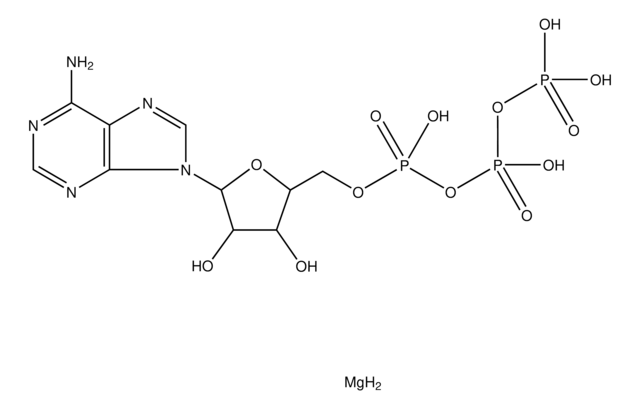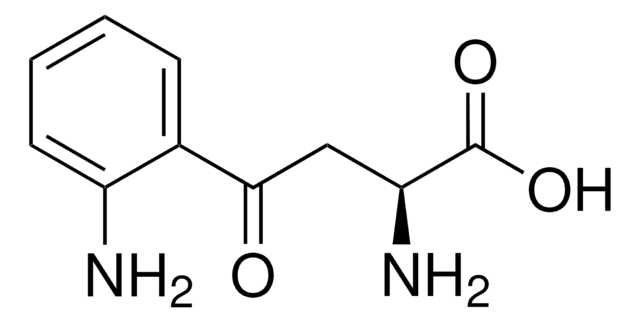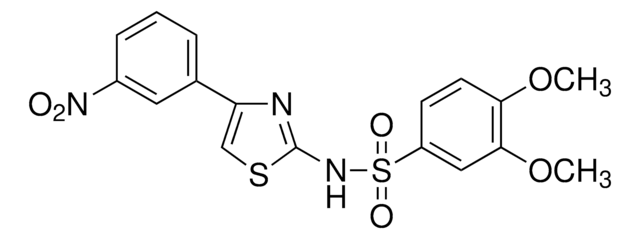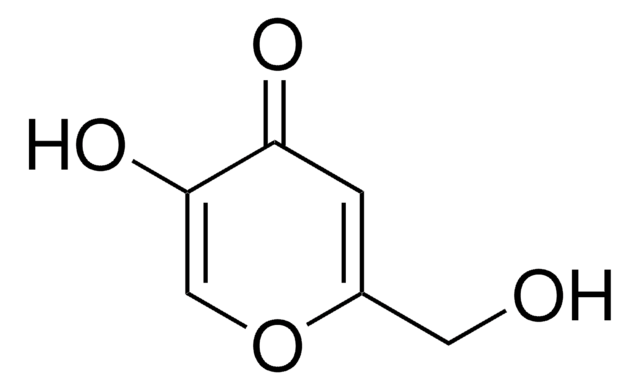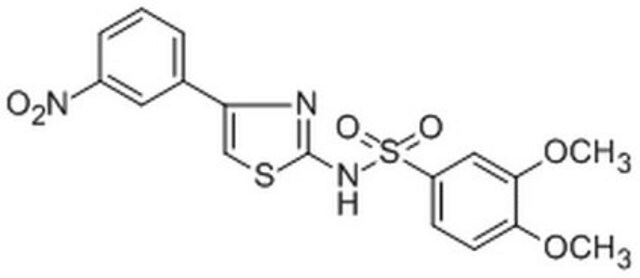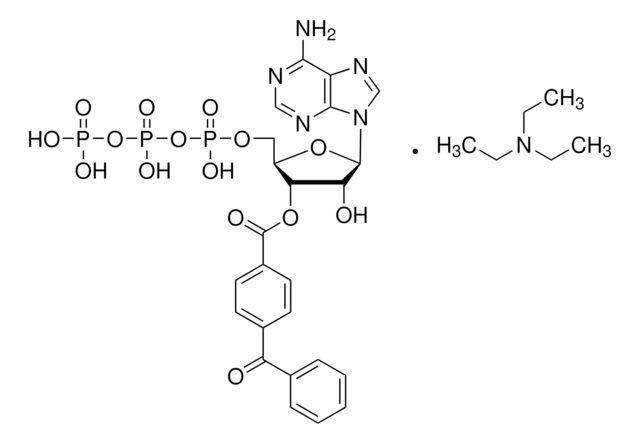PZ0250
PF-04859989 hydrochloride
≥98% (HPLC)
Sinónimos:
(3S)-3-Amino-1-hydroxy-3,4-dihydroquinolin-2(1H)-one; L-3-Amino-3,4-dihydro-1-hydroxycarbstyril hydrochloride, PF-4859989 hydrochloride, PF04859989 hydrochloride
About This Item
Productos recomendados
Quality Level
assay
≥98% (HPLC)
form
powder
color
white to beige
solubility
H2O: 20 mg/mL, clear
storage temp.
room temp
SMILES string
N[C@H]1CC2=CC=CC=C2N(O)C1=O.Cl
InChI
1S/C9H10N2O2.ClH/c10-7-5-6-3-1-2-4-8(6)11(13)9(7)12;/h1-4,7,13H,5,10H2;1H/t7-;/m0./s1
InChI key
WZOBDOKCHIUXAY-FJXQXJEOSA-N
Biochem/physiol Actions
Features and Benefits
Storage Class
11 - Combustible Solids
wgk_germany
WGK 3
flash_point_f
Not applicable
flash_point_c
Not applicable
Elija entre una de las versiones más recientes:
Certificados de análisis (COA)
¿No ve la versión correcta?
Si necesita una versión concreta, puede buscar un certificado específico por el número de lote.
¿Ya tiene este producto?
Encuentre la documentación para los productos que ha comprado recientemente en la Biblioteca de documentos.
Contenido relacionado
DISCOVER Bioactive Small Molecules for Neuroscience
Nuestro equipo de científicos tiene experiencia en todas las áreas de investigación: Ciencias de la vida, Ciencia de los materiales, Síntesis química, Cromatografía, Analítica y muchas otras.
Póngase en contacto con el Servicio técnico
